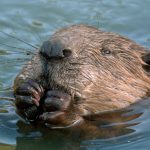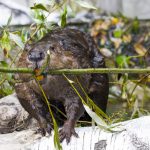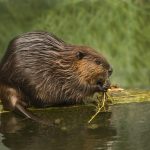Background
Important to the ecosystem, the Eurasian Beaver makes landscape changes to where it lives. It does this by creating ponds and dams which provide wetland habitats to many other animals. Therefore, having a huge knock on effect to biodiversity.
Habitat
They live in gentle streams, river and lakes as they are semi-aquatic animals and they seem to prefer freshwater sources.
Diet
They have differing diets during various months. In the winter months they will live off woody vegetation such as: twigs, bark, etc. and during the summer months, they will eat: shoots, leaves and roots.
Predators & Threats
The main predators of Eurasian Beavers are Red Foxes, Lynx and Eurasian Wolves. Hunting from humans was once a huge problem to the Beavers’ populations, however, it is now illegal. Despite this, they are still occasionally hunted but nowhere near the levels that they once were.
Facts
- They are the biggest living rodent.
- Before hunting them was illegal, they nearly became extinct in the 1900’s for fur and castoreum, a secretion to mark territory.
| Common Name(s) | Scientific Name |
| Eurasian Beaver | Castor fiber |
| Size | |
| 79-100 cm in length (without tail) | |
| Lifespan | |
| Up to 17 years. | |
Best Time to Look
All year round.





